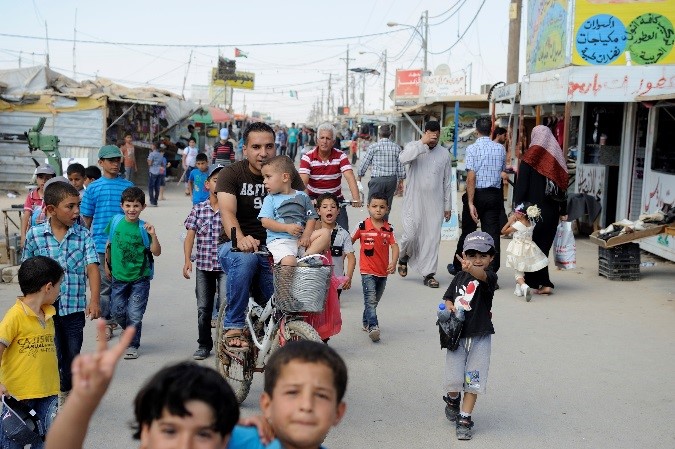From emergency to sustainability in Za’atari refugee camp and support to host communities in Jordan
04 September 2019Jordan’s Za’atari camp, located 10 km east of Mafraq in Northern Jordan, is one of the largest refugee camps in the world, in one of the most water scarce countries. The development of adequate water and sanitation systems is crucial. A process in which World Waternet provided support from the beginning. We now look back on five years of support to the UNHCR camp management, UNICEF and other aid organizations, and to the Water Authority of Jordan and Yarmouk Water Company.
Eight years into the Syria crisis, more than 5 million Syrian refugees are still displaced into Jordan and other neighboring countries. Since 2011, Jordan alone has provided refuge to more than 1.3 million Syrians. Almost 77.000 refugees live in Za’atari camp.
Za’atari camp opened on July 29th, 2012 to host approximately 22.000 refugees, but is now with almost 77.000 refugees one of the largest in the world (source: UNHCR ()). Acting as medium-sized town, the challenge of Za’atari camp mirrors those of regular cities. Host communities in Jordan, especially in the North, were challenges with tremendous pressure on the infrastructure and services needed to provide crucial services to both their own populations and refugees.
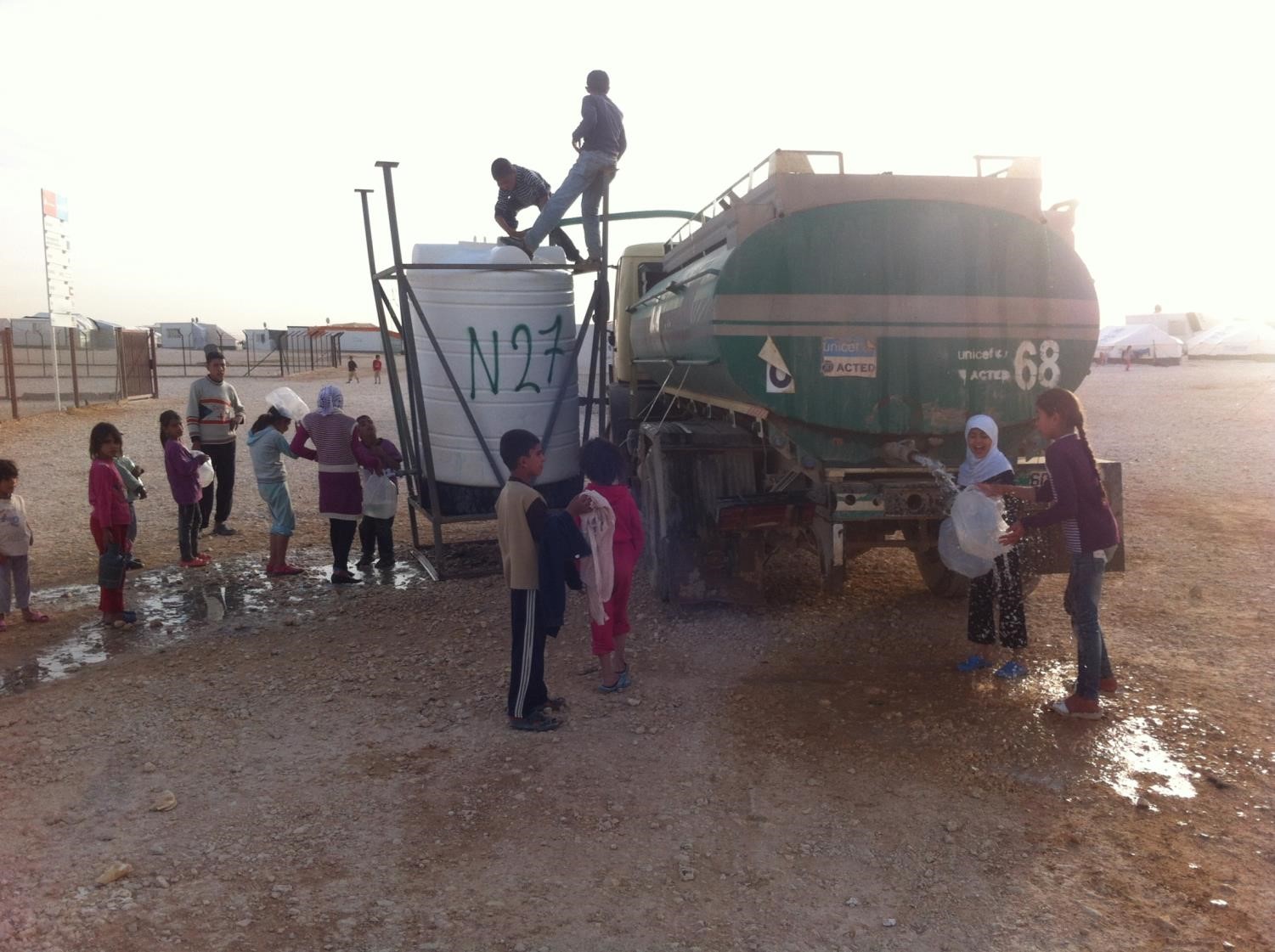
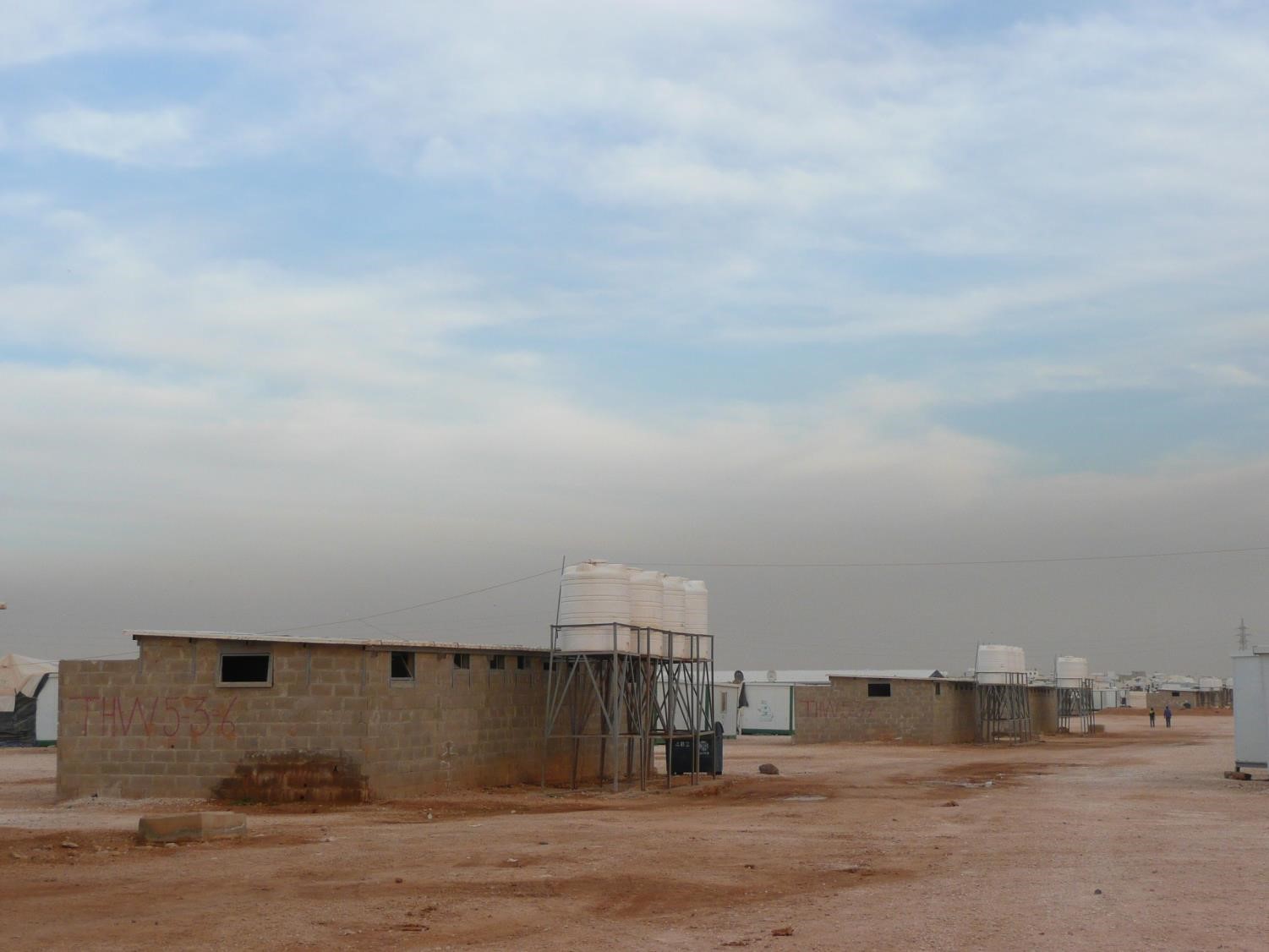
Water was distributed with trucks in the camp and drinking water was limited at 35 liter per person per day (left). During the emergency phase, more than 400 communal WASH blocks were constructed in the camp with toilets, showers and sinks (right).
Municipal assistance programme
In response to these challenges, the Dutch Ministry of Foreign Affairs and the international branch of the Association of Dutch Municipalities (VNG-I) developed a municipal assistance programme (the Local Government Resilience Programme, LOGOReP ()) that supports both the short- and long-term assistance of the refugees, strengthening sustainable and qualitative assistance, with a focus on host communities in the Mafraq region and Za'atari camp.
The programme addresses issues on urban planning, drinking water, sewage and garbage disposal. Our role was to provide support and give advice on water and sanitation to UNHCR, UNICEF and particularly Yarmouk Water Company in Jordan, the responsible water utility in the North of Jordan. Our support has led to a more efficient way of organizing municipal services and improvement of the livelihoods of citizens and refugees.
From communalfacilities to water infrastructure in Za’atari camp
In the beginning, there were only communal facilities in the camp and drinking water was available at certain points. Now, there are three internal water wells and a wastewater treatment plant to meet the needs of the camp’s population. A piped water supply distribution system ensures water delivery to every Za’atari household, together with a piped sewerage network, linking the collection system to the wastewater treatment plant. We have assisted UNICEF and UNHCR in the transition at strategical and technical level, by building capacity of local staff.
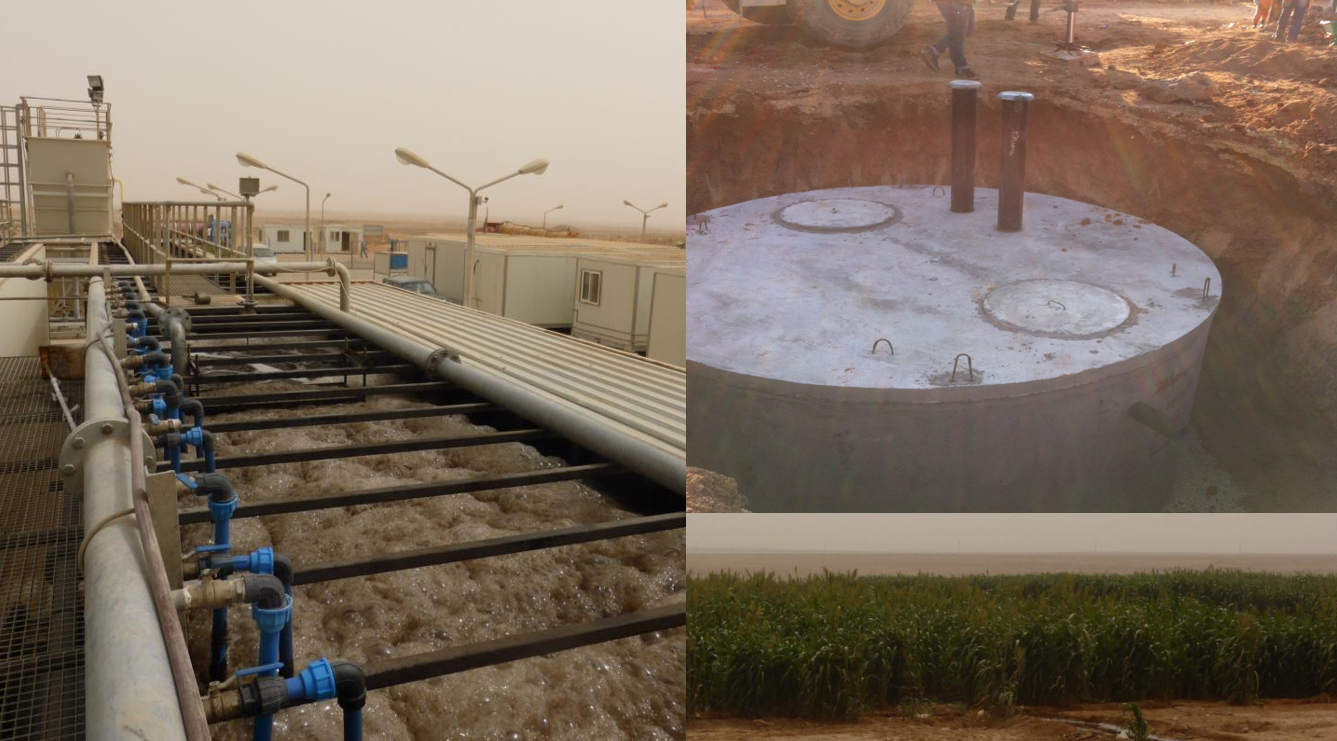
Currently, 1500 m3 of wastewater is daily collected from the private pits, storm water drain and communal facilities. It is transported with trucks to the containerized Za’atari wastewater treatment plant. The plant alleviates the stress on Jordanian systems and the effluent is used for growing animal fodder next to the camp.
Sewer cleaning methodology in host communities
The nearby city Mafraq is affected by decreasing water availability, service intermittency, and a massive increase in population due to hosting Za’atari refugee camp. In 2016, after a few years of successful collaboration with the local water utility, Yarmouk Water Company, an Arabic speaking World Waternet team started to train fellow sewer workers in Jordan. For this intensive on-the-job-training on sewer cleaning, rehabilitation and maintenance, we donated two Waternet sewer vacuum trucks. This resulted in a new way of sewer cleaning in Mafraq that is now being adopted in the rest of the country, and in Mafraq there are now 18 better trained sewer cleaners! Below a short video of our work with water company Yarmouk on improving sewerage management.
U kunt deze video niet bekijken omdat tracking cookies uit staan. Lees meer op de privacy- en cookiespagina.
Capacity building in asset management
Together with three local water companies and the Jordan Ministry of Water and Irrigation, one of our tasks was to improve future sustainability in equitable water and sanitation access. Our focus: capacity development in the field of asset management, using our water cycle approach. Together with IHE Delft, we provided training, workshops and mentoring to participants ranging from the level of director to field engineer from local and central government, UNHCR, UNICEF and water companies Yarmouk, Miyahuna and Aqaba. Our integrated asset management workshops for water and sanitation assets were supportive in prioritizing investments for improving the service of drinking water delivery in Mafraq city.
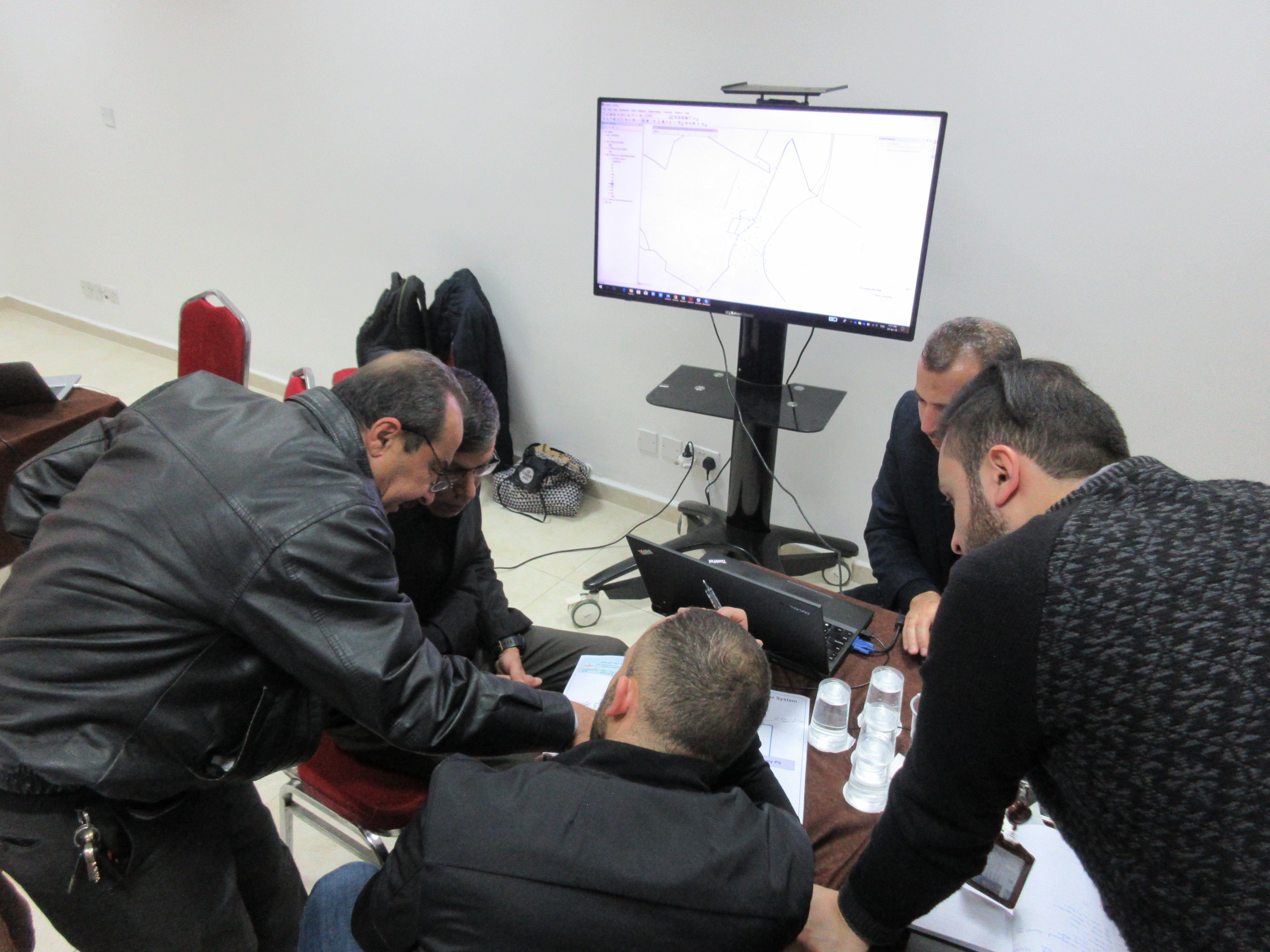
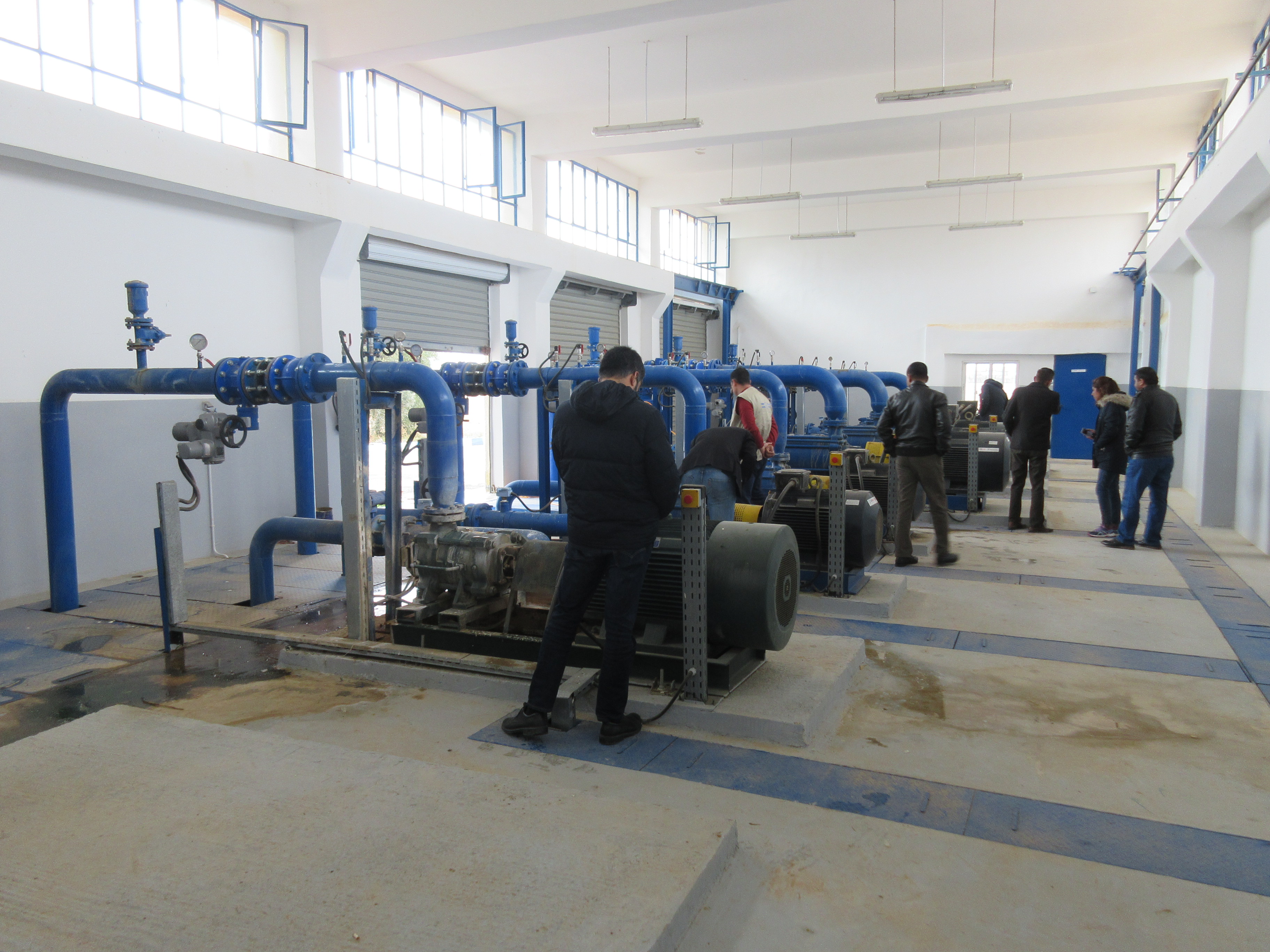 Asset management training (visualisation of the drinking water system of Mafraq) and field visit to a pumping station in Mafraq.
Asset management training (visualisation of the drinking water system of Mafraq) and field visit to a pumping station in Mafraq.
Fruitful collaboration with all partners involved
We look back on a special collaboration with all organisations involved. We feel privileged to have worked with so many enthusiastic fellow water workers in Jordan and to been given the opportunity to provide support to Jordan and the Syrian refugees within Jordan.
The collaboration lead to the publication of:
